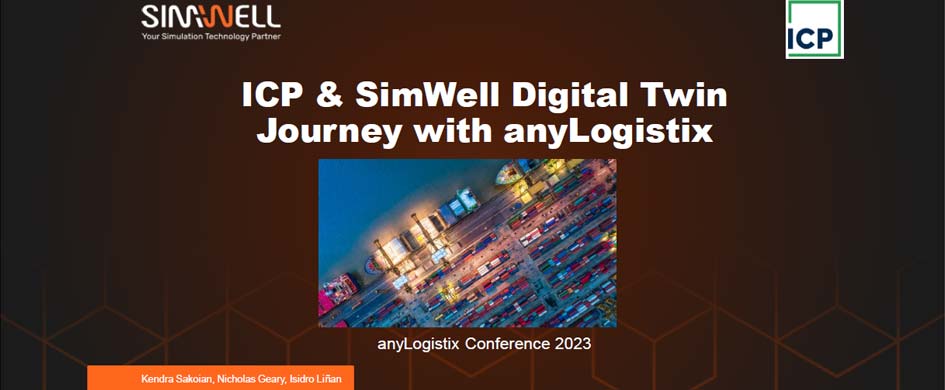

ICP Group is a leading U.S.-based manufacturer of coatings, adhesives, and sealants, with additional operations in Europe and Asia. Acquired by private equity firm Audax, the company has a global reach with multiple locations around the world.
SimWell is a premier partner for anyLogistix software in the United States and Canada. The company helps trailblazing business leaders make confident decisions using simulation, optimization, artificial intelligence, and data science. With a global team of consultants, they are a major player in the simulation consulting arena.
ICP Group's rapid growth since its founding in 2015, both organically and through acquisitions, brought with it a set of supply chain design complexities. With more than 20 manufacturing facilities in North America, nearly 30 distribution centers, and over 10.000 SKUs, the conglomerate faced challenges in streamlining its operations. Added to that were the pressures of a competitive market, growing demand, and disruptions in the supply chain.
The company sought to:
Specific questions arose around supply chain cost reduction, transportation, and distribution:
To address complex supply chain challenges, SimWell decided to create a digital twin. The solutions provided by the anyLogistix simulation modeling software would enable the optimization of distribution centers and factory locations, contributing to operational efficiencies and cost reductions. With this digital twin, ICP would gain the ability to make comprehensive and data-driven decisions without having to rely on external consultants.
To address the challenges of implementing a digital twin, SimWell and ICP developed an integrated data architecture that brought together several key components. Firstly, they selected anyLogistix as a powerful simulation and optimization platform, which was critical to consolidating and standardizing operations across ICP's supply chain network.
One of the key features of anyLogistix for this project was the seamless transition from Greenfield Analysis (GFA) to Network Optimization (NO). This allowed the SimWell team to work closely with ICP to identify potential distribution center (DC) locations through GFA. Once the DC location candidates were selected, they moved to NO. This repetitive process of going back and forth between GFA and NO allowed SimWell to find the most effective supply chain design solutions.
In addition to the technical capabilities of the platform, user feedback was an integral part of the development process. Dashboards were created using Power BI to provide real-time validation and feedback to help refine the model on an ongoing basis. These dashboards were driven by data pipelines and updates managed through Alteryx workflows. This tool allowed the SimWell team to receive, consolidate, and transfer information from the ICP databases to anyLogistix.

Integrated data architecture
The architecture also allowed for scalability and flexibility. For example, new nodes could be easily added to the network to see their impact, and adjustments could be made to products, nodes, or transportation costs as needed.
The implementation of the digital twin led to tangible and actionable outcomes for ICP. Using anyLogistix, the team was able to create a graphical representation that helped ICP management make informed decisions about the number of warehouses needed for their North American operations. The visual representation showed that by increasing the number of warehouses, customer demand could be met with fewer average miles, resulting in a more efficient supply chain network.
In addition to this, the model was useful for simulating various supply chain design scenarios, which enabled ICP to meet customer demand more effectively over different distances. The model could show what percentage of demand could be met within specific ranges, such as 40 distribution centers within 500 miles and 1,000 miles. This data was invaluable for management to understand not only the current state but also the future possibilities for their network.
An optimized baseline model was created to represent ICP’s immediate plans and future limitations. When compared to the historical baseline of 2022, significant supply chain cost reduction opportunities were identified. In fact, the initial experiment alone identified a 7% savings opportunity for ICP. This provided the company with a roadmap for potential future supply chain cost reductions and offered a strong endorsement of the digital twin technology as a tool for ongoing operational optimization.
This digital twin case study was not only a technological milestone but also a strategic success. By leveraging anyLogistix capabilities, ICP significantly reduced uncertainty and now has a sustainable pathway for continuous optimization. The partnership between SimWell’s technical and supply chain design expertise and ICP’s deep operational knowledge has resulted in a solution that promises long-term benefits.
This case study was presented by Kendra Sakoian, ICP Group, and Isidro Liñan, SimWell, at the anyLogistix Conference 2023.
The slides are available as a PDF.
